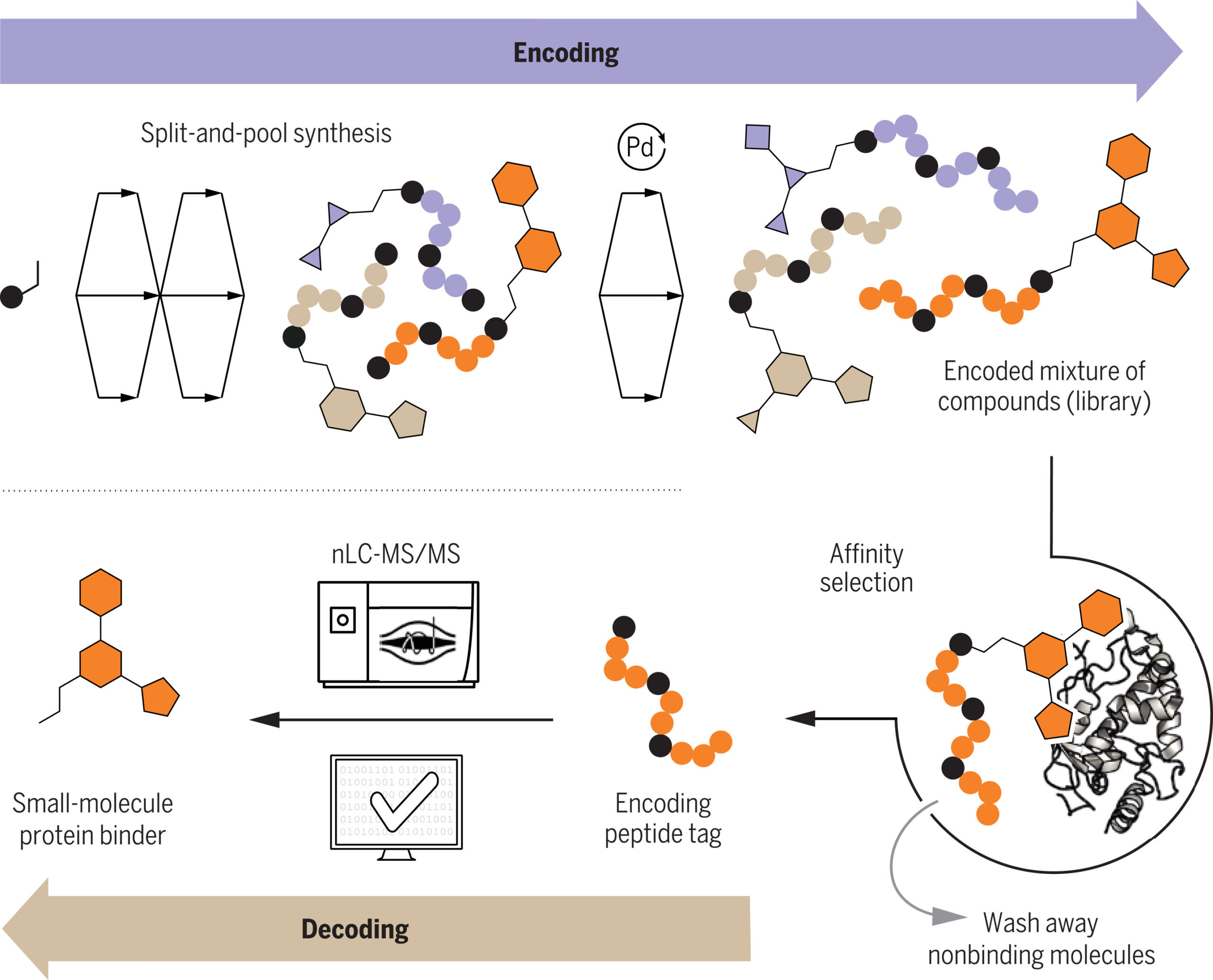
Abiotic peptides as carriers of information for the encoding of small-molecule library synthesis

Abiotic peptides as carriers of information for the encoding of small-molecule library synthesis
SIMON L. RÖSSLER, NATHALIE M. GROB, STEPHEN L. BUCHWALD, AND BRADLEY L. PENTELUTE
Abstract
The discovery of therapeutics and biochemical probes hinges on the ability to identify molecules that interact with biological targets of interest. Technologies such as DNA-encoded libraries have transformed the process of drug discovery by enabling the rapid synthesis of vast collections of molecules, each encoded with a unique appendant DNA tag, and their subsequent screening in affinity selection experiments. However, the use of DNA to encode information confers synthetic limitations owing to the incompatibility of oligonucleotides with various chemical reaction conditions that result in the loss of stored information. As a consequence, chemical transformations developed for DNA-encoded library synthesis have to be optimized for oligonucleotide compatibility rather than reaction efficiency and scope. Given the vast potential of encoded library technologies in drug discovery, complementary platforms addressing the limitations of DNA encoding by leveraging carriers of information with higher stability and versatility are desirable.



